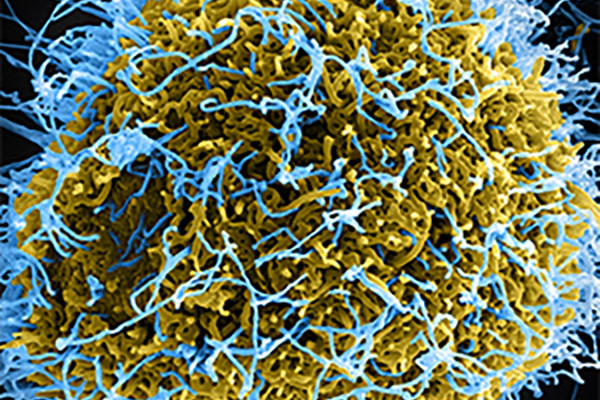New test detects all viruses that infect people, animals
A new test efficiently detects virtually any virus that infects people and animals, according to research at Washington University School of Medicine, where the technology was developed.
Treatment failure in parasite infection tied to virus
Two new studies explain why some parasite
infections, such as those common in developing countries, sometimes
can’t be cured with standard treatments. The research shows the parasite Leishmania — which infects 12 million
people worldwide — often harbors a virus that helps the parasite
survive treatments.
Possible treatments identified for highly contagious stomach virus
Antibiotics aren’t supposed to be effective against viruses, but new evidence in mice suggests they may help fight norovirus, a highly contagious virus that causes severe gastrointestinal illness, scientists at the School of Medicine report.
Healthy humans make nice homes for viruses
The same viruses that make us sick can take up residence in and on the human body without provoking a sneeze, cough or other troublesome symptom, according to new research at Washington University School of Medicine in St. Louis.
Study reveals how Ebola blocks immune system
The Ebola virus, in the midst of its biggest outbreak on record, is a master at evading the body’s immune system. But researchers at the School of Medicine and elsewhere have learned one way the virus dodges the body’s antiviral defenses, providing important insight that could lead to new therapies.
Molecular scissors help viruses break out of cells
Scientists at the School of Medicine have produced the first detailed images of a protein important to viral infection. The images, from Phyllis Hanson, MD, PhD, and her colleagues, are of molecular scissors that let viruses such as HIV bud from infected cells.
Fighting parasitic infection inadvertently unleashes dormant virus
Signals from the immune system that help repel a common parasite inadvertently can cause a dormant viral infection to become active again, a new study from the School of Medicine shows. Pictured is a helminth parasite.
$32 million NIH grant funds study of multipurpose infection fighter
A multi-institutional campaign to harness a newly recognized cellular defense against infection is being led by researchers at the School of Medicine. A $32 million grant from the National Institutes of Health is funding the collaborative, which could lead to drugs with unprecedented versatility in fighting different infections. Washington University’s Herbert W. Virgin IV, MD, PhD, is the principal investigator.
In children with fever, gene profiling distinguishes bacterial from viral infections
Researchers have shown they can distinguish between viral and bacterial infections in children with fever by profiling the activity of genes in a blood sample.
Key signal prepares immune cells to defend skin, brain
Scientists at Washington University School of Medicine
in St. Louis have identified the molecular signal that triggers the
development of immune cells that patrol the skin and brain.
View More Stories

